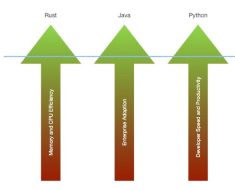Nvidia CEO, Jensen Huang, has made a bold statement regarding the future of artificial general intelligence (AGI) at a recent economic forum. While discussing the timeline for achieving AGI, Huang suggested that it could become a reality within the next five years, depending on how the goal is defined.
Huang emphasized that the definition of AGI is crucial in understanding the timeline for its development. If passing human tests is the benchmark, then AGI could arrive sooner than expected. He stated that if given a comprehensive list of tests, he believes AI will be able to perform exceptionally well on every single one in five years.
Currently, AI has demonstrated its capabilities in passing certain tests, such as legal bar exams. However, it still faces challenges in specialized medical tests. Huang expressed confidence that within the next five years, AI will be able to pass any test thrown at it, including those in complex medical fields.
Nevertheless, Huang acknowledged that AGI’s arrival might be delayed when using alternative definitions. The scientific community is still grappling with the complexities of human cognition, making it difficult to engineer AGI with specific goals in mind. Huang highlighted that engineers thrive on well-defined objectives, making AGI’s development more challenging in this context.
During the forum, Huang also addressed the need for more chip factories to support the rapid expansion of the AI industry. While reports suggest that OpenAI’s CEO, Sam Altman, believes numerous fabs are necessary, Huang provided a more nuanced perspective. He acknowledged the importance of additional fabs but emphasized that improvements in algorithms and processing power will limit the number of chips required. Huang’s optimism stemmed from his belief that computing efficiency will improve exponentially over the next decade, potentially by a million times.
In conclusion, the future of AGI appears to be within reach, with Huang projecting a potential arrival within the next five years. However, the definition of AGI and the challenges associated with understanding human cognition continue to shape the timeline and complexity of its development. As the AI industry expands, the need for more chip factories becomes evident, but advancements in technology are expected to optimize computing efficiency and reduce the overall demand for chips.
FAQ Section:
Q: What did Nvidia CEO, Jensen Huang, suggest regarding the future of artificial general intelligence (AGI)?
A: Huang suggested that AGI could become a reality within the next five years, depending on how the goal is defined.
Q: Why is the definition of AGI important?
A: The definition of AGI is crucial in understanding the timeline for its development. If passing human tests is the benchmark, then AGI could arrive sooner than expected.
Q: What did Huang say about AI’s ability to pass tests in the next five years?
A: Huang believes that within the next five years, AI will be able to perform exceptionally well on every single test, including those in complex medical fields.
Q: What challenges does AGI development face?
A: Huang highlighted that AGI’s development is challenging due to the complexities of human cognition. Engineers thrive on well-defined objectives, which makes it difficult when dealing with AGI.
Q: What perspective did Huang provide on the need for chip factories?
A: Huang acknowledged the importance of additional chip factories but emphasized that improvements in algorithms and processing power will limit the number of chips required. He believes computing efficiency will improve exponentially over the next decade.
Key Terms:
– Artificial General Intelligence (AGI): Refers to highly autonomous systems that are capable of outperforming humans in most economically valuable work.
– AI: Artificial Intelligence, refers to the simulation of human intelligence in machines that are programmed to think and learn like humans.
Suggested Related Links:
– Nvidia Official Website: The official website of Nvidia, the company mentioned in the article.
– OpenAI Official Website: The official website of OpenAI, mentioned in relation to chip factories in the article.



